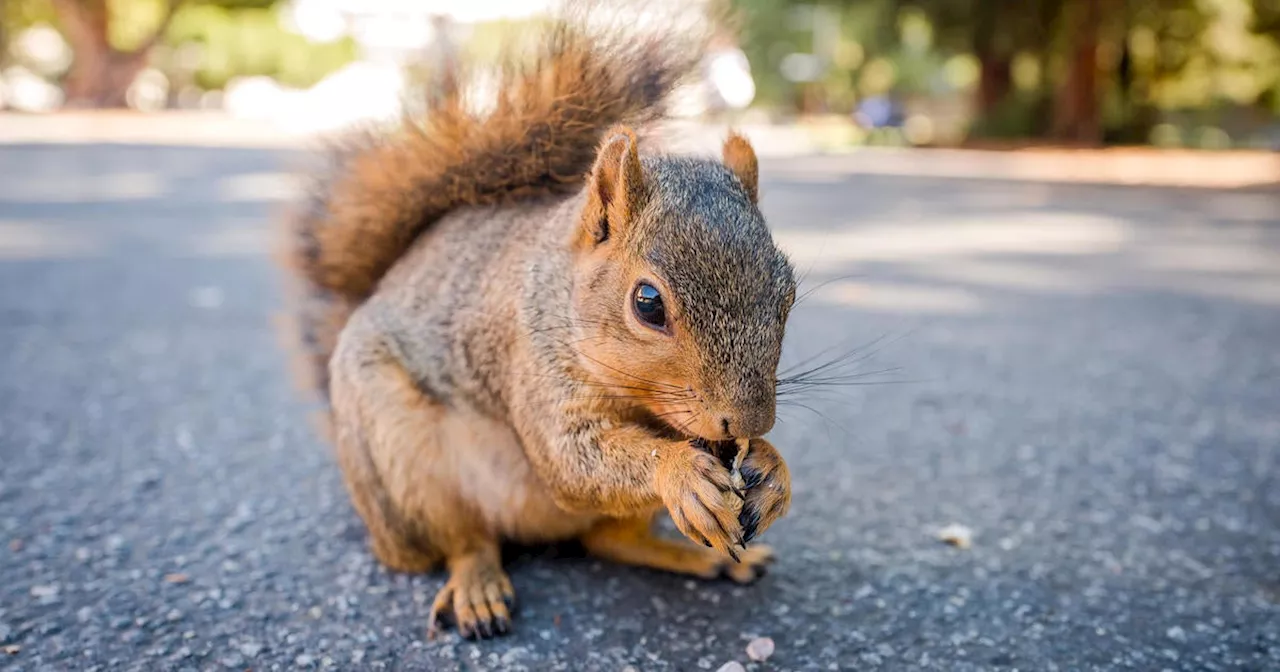A new study reveals that cuttlefish possess the ability to delay gratification, a trait previously linked to higher cognitive function in vertebrates like chimpanzees. The research suggests this ability may have evolved to help cuttlefish optimize their foraging strategies in the dangerous marine environment.
Back in 2021, a test of cephalopod smarts reinforced how important it is for us humans to not underestimate animal intelligence. Cuttlefish were given a new version of the marshmallow test, and the results may demonstrate that there's more going on in their strange little brains than we knew. Their ability to learn and adapt, the researchers said, could have evolved to give cuttlefish an edge in the cutthroat eat-or-be-eaten marine world they live in.
A child is placed in a room with a marshmallow. They are told if they can manage not to eat the marshmallow for 15 minutes, they'll get a second marshmallow, and be allowed to eat both. This ability to delay gratification demonstrates cognitive abilities such as future planning, and it was originally conducted to study how human cognition develops; specifically, at what age a human is smart enough to delay gratification if it means a better outcome later. Because it's so simple, it can be adjusted for animals. Obviously you can't tell an animal they'll get a better reward if they wait, but you can train them to understand that) can refrain from eating a meal of crab meat in the morning once they have learnt dinner will be something they like much better – shrimp., in this case it was difficult to determine whether this change in foraging behavior in response to prey availability was also being governed by an ability to exert self-control. So they designed another test, for six common cuttlefish. The cuttlefish were placed in a special tank with two enclosed chambers that had transparent doors so the animals could see inside. In the chambers were snacks – a less-preferred piece of raw king prawn in one, and a much more enticing live grass shrimp in the other.The doors also had symbols on them that the cuttlefish had been trained to recognise. A circle meant the door would open straight away. A triangle meant the door would open after a time interval between 10 and 130 seconds. And a square, used only in the control condition, meant the door stayed closed indefinitely. In the test condition, the prawn was placed behind the open door, while the live shrimp was only accessible after a delay. If the cuttlefish went for the prawn, the shrimp was immediately removed. Meanwhile, in the control group, the shrimp remained inaccessible behind the square-symbol door that wouldn't open. The researchers found that all of the cuttlefish in the test condition decided to wait for their preferred food (the live shrimp), but didn't bother to do so in the control group, where they couldn't access it. 'Cuttlefish in the present study were all able to wait for the better reward and tolerated delays for up to 50-130 seconds, which is comparable to what we see in large-brained vertebrates such as chimpanzees, crows, and parrots,' The other part of the experiment was to test how good the six cuttlefish were at learning. They were shown two different visual cues, a grey square and a white one. When they approached one, the other would be removed from the tank; if they made the'correct' choice, they would be rewarded with a snack. Once they had learnt to associate a square with a reward, the researchers switched the cues, so that the other square now became the reward cue. Interestingly, the cuttlefish that learnt to adapt to this change the quickest were also the cuttlefish that were able to wait longer for the shrimp reward.In species such as parrots, primates, and corvids, delayed gratification has been linked to factors such as tool use (because it requires Cuttlefish, as far as we know, don't use tools or cache food, nor are they especially social. The researchers think this ability to delay gratification may instead have something to do with the way cuttlefish forage for their food. 'They break camouflage when they forage, so they are exposed to every predator in the ocean that wants to eat them. We speculate that delayed gratification may have evolved as a byproduct of this, so the cuttlefish can optimize foraging by waiting to choose better quality food.' It's a fascinating example of how very different lifestyles in very different species can result in similar behaviors and cognitive abilities
Cuttlefish Delayed Gratification Cognitive Ability Marine Animals Foraging Behavior
United States Latest News, United States Headlines
Similar News:You can also read news stories similar to this one that we have collected from other news sources.
 Once-endangered Kirtland's warblers show extensive signs of inbreeding in genomeThe genome of a once-endangered songbird shows extensive signs of inbreeding, according to a new study. Because inbreeding can negatively impact survival and reproduction, the results could guide continuing conservation efforts for Kirtland's warblers.
Once-endangered Kirtland's warblers show extensive signs of inbreeding in genomeThe genome of a once-endangered songbird shows extensive signs of inbreeding, according to a new study. Because inbreeding can negatively impact survival and reproduction, the results could guide continuing conservation efforts for Kirtland's warblers.
Read more »
 NASCAR Star Signs Blockbuster Disney+ Deal on New ShowDisney+ is reviving 'Malcolm in the Middle' with Frankie Muniz returning to acting for new episodes after his professional racing career.
NASCAR Star Signs Blockbuster Disney+ Deal on New ShowDisney+ is reviving 'Malcolm in the Middle' with Frankie Muniz returning to acting for new episodes after his professional racing career.
Read more »
Wizards Players Show Signs of Recovery, Potential Return This WeekThe Washington Wizards are seeing positive developments in the recovery of several key players, including Brogdon, George, and Kispert, who have missed recent games due to injuries. There is optimism they could return to the court as early as this week.
Read more »
 Bitcoin, Ethereum, and Ripple Prices Show Signs of CorrectionBTC, ETH, and XRP prices see slight dips, indicating a possible short-term correction. Ripple's XRP sees a 3% increase after RLUSD launch, but struggles to break through $2.58 resistance. Ethereum's ETH price dips following Bitwise predictions of increased RWA tokenization boosting its appeal in 2025.
Bitcoin, Ethereum, and Ripple Prices Show Signs of CorrectionBTC, ETH, and XRP prices see slight dips, indicating a possible short-term correction. Ripple's XRP sees a 3% increase after RLUSD launch, but struggles to break through $2.58 resistance. Ethereum's ETH price dips following Bitwise predictions of increased RWA tokenization boosting its appeal in 2025.
Read more »
 Squirrels Show First Signs of Widespread Carnivorous BehaviorA new study by UC Davis researchers reveals that ground squirrels are actively hunting and consuming voles, challenging our understanding of these typically herbivorous creatures.
Squirrels Show First Signs of Widespread Carnivorous BehaviorA new study by UC Davis researchers reveals that ground squirrels are actively hunting and consuming voles, challenging our understanding of these typically herbivorous creatures.
Read more »
 Mariah Carey Signs Autograph on Rihanna's Chest at Christmas ShowPop superstars Mariah Carey and Rihanna had a hilarious moment at Carey's Christmas show when Carey requested an autograph on Rihanna's chest.
Mariah Carey Signs Autograph on Rihanna's Chest at Christmas ShowPop superstars Mariah Carey and Rihanna had a hilarious moment at Carey's Christmas show when Carey requested an autograph on Rihanna's chest.
Read more »
